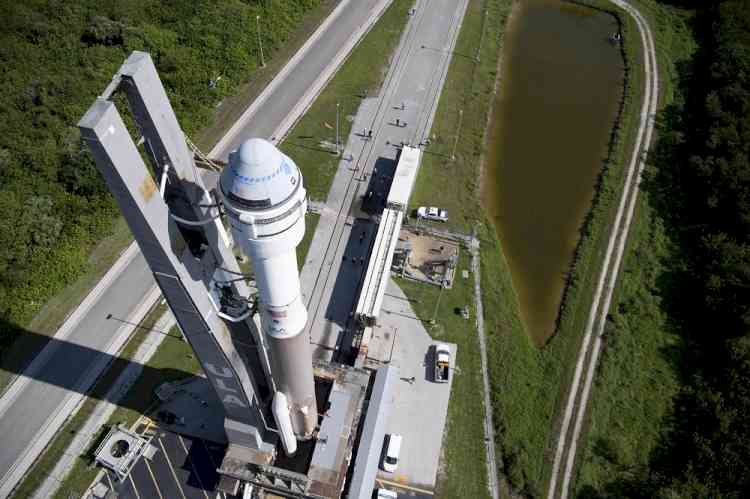NASA-Boeing Starliner delayed till mid-2022, probe into faulty valves continues

Washington, Oct 20 (IANS) NASA and Boeing's Starliner cargo spacecraft's orbital flight test has been postponed until the middle of next year as investigation into its faulty valves continues.
Boeing and NASA had originally aimed to launch Starliner's Orbital Test Flight 2 (OFT-2), a crucial uncrewed trial mission to the International Space Station (ISS), from Florida's Cape Canaveral Space Force Station on July 30.
But preflight checks revealed 13 stuck valves in Starliner's service module, nixing that liftoff plan.
"We had no indication that there was going to be any problem with these valves," John Vollmer, the manager of Boeing's commercial crew operations, was quoted as saying by The New York Times.
"The valves are part of an ornate network of plumbing in a detachable trunk called the "service module" that houses Starliner's propulsion gear. The components worked during previous tests, including a trial of the spacecraft's emergency abort system in 2019.
"Boeing has yet to determine what caused the valves to become stuck. Engineers were mulling whether to bring in an entirely new service module, but Boeing recently decided to keep the existing one," Vollmer said.
Two valves have been removed from the spacecraft and sent to NASA's Marshall Space Flight Center, where they will be disassembled and examined for further investigation, Michelle Parker, Boeing's chief engineer of space and launch, said during a media briefing on Tuesday, TechCrunch reported.
It's being speculated that the valve issue came up due to moisture that accumulated near some of the valves' Teflon seal.
Boeing built Starliner under a NASA contract worth $4.5 billion and had signed a contract with NASA's Commercial Crew Programme to fly operational missions to and from the space station with Starliner in 2014. However, a series of setbacks have thus far prevented the Starliner from reaching the ISS.
Its debut uncrewed orbital flight mission in 2019 did not go exactly as planned because of dozens of software glitches, requiring it to make another try before putting astronauts on board for the crewed flight test.
Again its second launch has been held up since late last year due to ongoing software checks. Later the engineers detected the valve issue in its propulsion system, which has not been solved yet.


 IANS
IANS 








